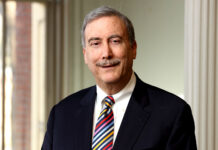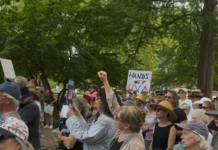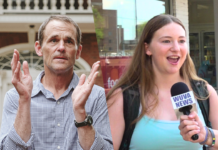This past Tuesday, the LGBTQ Center hosted the first forum of their new series called “Queer Health Talk.” Four guest speakers discussed the topic: How to Talk to Your Doctor or Therapist about Being Queer.
Katie Richard, LPC and Jackie Woods, Ph. D. both came as representatives for CAPS, UVa’s Counseling and Psychology Services department. They spoke about the difficulties that queer students face when trying to match with an identity-affirming therapist.
“These students are not seeking counseling because of their identity,” Richard clarified.
The CAPS representative reassured students that anyone at UVa who desires treatment for any reason has the right to a therapist that works well with them.
“This includes therapists who use the pronouns you prefer, and who understand all parts of your personality–not just your gender identity.”
Dr. Woods presented a few of the barriers that might make LGBTQ+ students hesitant to consult CAPS.
“There could be a number of reasons; you don’t want to be outed, you fear old fashioned and illegal conversion therapies, or you just don’t feel that any of our counselors will understand,” she noted.
Like Katie Richard and Dr. Woods, there are certified specialists for trans and LGBTQ+ students on the CAPS team. The new CAPS database can be used to find affirming therapists before students begin engaging.
Dr. Woods turned the forum over to Nurse Practitioner, Elke Zschaebitz, and public activist and Health Counselor Jason Elliot.
Elliot, a former UVa student, spoke of his experiences and his attempt to find the right support while in school. To this day, he urges the importance of being honest when seeking help.
“I would not be alive today without my acapella group and my CAPS counselor,” he declared. “If you are uncomfortable, you’re not with the right person–no matter what the reason.”
Zschabitz, a Student Health employee, spoke of the benefits associated with telling your doctor about your queer identity.
“Doctors can then offer personalized care, check for specific illnesses and lead you to the most accurate referrals.”
If students are unsure whether a doctor or therapist is an ally, they can look to the building walls or even at the specialist’s name tag. Doctors will often place a rainbow sticker, an ally flag, or a bi-pride flag on their IDs. Therapists may decorate their walls or offices with these symbols to show their support.
Elliot spoke at length about the motives behind what might feel like prying questions during treatment.
“In most cases, a doctor is asking you about your identity because they want to give you the best care possible, not to put you on the spot,” he said. When asked about any particular trends the four panelists have witnessed regarding LGBTQ+ rights, each speaker indicated that professionals today tend to want to know more about different gender identities so that they can offer the best form of assistance.
“If all else fails, and you don’t feel comfortable being honest, please make use of the resources that are available today,” Elliot added. All speakers provided their contact information and promised to be allies to all LGBTQ+ students at UVa.
Finally, the speakers advised the friends of LGBTQ+ students who seek to help during the treatment process. Again, the panelists each emphasized that the identity is not an illness but that everyone sometimes needs support.
Dr. Woods recommended that allies do their best to just be there for their friends. Elliot concluded, “I know that it is much easier to tell [friends] to back off than it is to ask for [their] help.”
The LGBTQ Center plans to host similar forums in the future. Visit their office in Newcomb Hall to learn more.
















